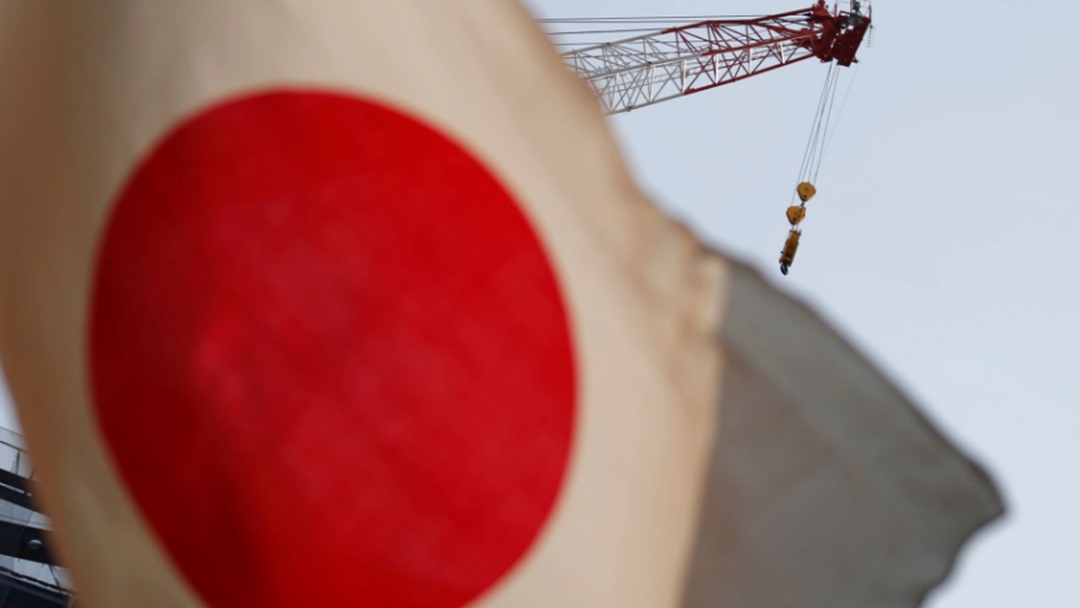
A crane at a construction site is seen behind Japan's national flag in Tokyo, Japan, August 12, 2016. /Reuters
A crane at a construction site is seen behind Japan's national flag in Tokyo, Japan, August 12, 2016. /Reuters
Japan's economy shrank at a slower-than-initially reported pace in the first quarter, on smaller cuts to plant and equipment spending, but the coronavirus pandemic still dealt a huge blow to overall demand.
Separate data showed growth in bank lending slowed sharply in May, while real wages posted the biggest monthly jump in more than a decade in April, in signs that the world's third-largest economy was gradually overcoming last year's pandemic hit.
Among the mixed indicators are some reassuring signs for policymakers, who are worried Japan's recovery will lag major economies that have rolled out COVID-19 vaccines much quicker and are able to reopen faster.
The revised gross domestic product (GDP) decline was mainly due to a smaller fall in public and capital spending, which both eased less than initially thought, offsetting a slightly larger fall in private consumption.
The economy retreated an annualized 3.9 percent in January-March, not as bad as the preliminary reading of an annualized 5.1-percent contraction, but still posting the first fall in three quarters, Cabinet Office data showed Tuesday.
The reading, which beat economists' forecast for a 4.8-percent decline, equals a real quarter-on-quarter contraction of 1.0 percent from the prior quarter, versus a preliminary 1.3-percent drop.
"Overall, capital spending and private consumption remained weak, which showed weakness in domestic demand," said Takeshi Minami, chief economist at Norinchukin Research Institute.
"The vaccine issue is the most important thing for the [economic] recovery," he said, adding that the vaccination rate would need to come to about 50 percent to boost the country's economic recovery prospects.
Capital spending shrank 1.2 percent from the prior quarter, better than a preliminary 1.4-percent decrease, and matching the median forecast for a 1.2-percent loss. Government consumption fell 1.1 percent, a smaller drop than a preliminary 1.8-percent decline.
Private consumption, which makes up more than half of gross domestic product, dropped 1.5 percent from the previous three months, worse than the initial estimate of a 1.4-percent drop.
However, Economy Minister Yasutoshi Nishimura said spending could recover as consumers return to the streets.
"If infections subside, there'll be pent-up demand from not having been able to go eating out or traveling," Nishimura told reporters after the release of the data.
Net exports – or exports minus imports – subtracted 0.2 percentage point from growth, while the hit to domestic demand pulled it down by 0.8 percentage point, not as bad as a preliminary contribution of minus 1.1 percentage point.
The better-than-expected revision comes after household spending and exports jumped in April, though the gains were inflated largely by the comparison to last year's deep pandemic-driven plunge.
Total lending by Japan's banks grew 2.9 percent in May from a year earlier, slowing at a record pace from a 4.8-percent increase in April, Bank of Japan data showed on Tuesday.
Inflation-adjusted wages, a barometer of household purchasing power, rose 2.1 percent in April on a year-on-year basis, the government said.
The bank lending slowdown was due largely to the base effect of a COVID-driven surge last year, while a drop in consumer prices and rebounds in overtime pay and compensation for part-time workers helped lift wages.
The government has come under political pressure to water down an already stretched fiscal target this year as the cost to combat the health crisis accumulates.
Some analysts expect Japan's economy to post another contraction in the current quarter – pushing it back into a technical recession – as an extension of coronavirus emergency curbs for Tokyo and other major areas hurts domestic demand.
Source(s): Reuters

